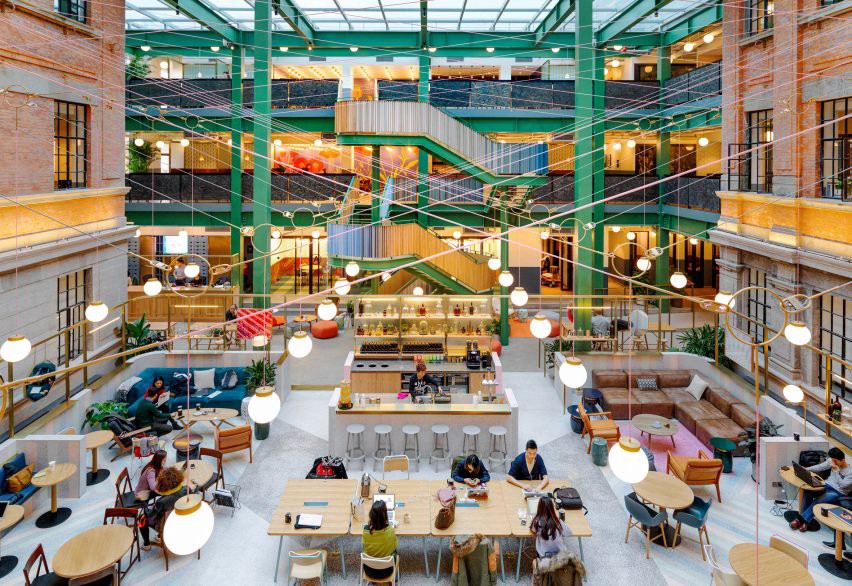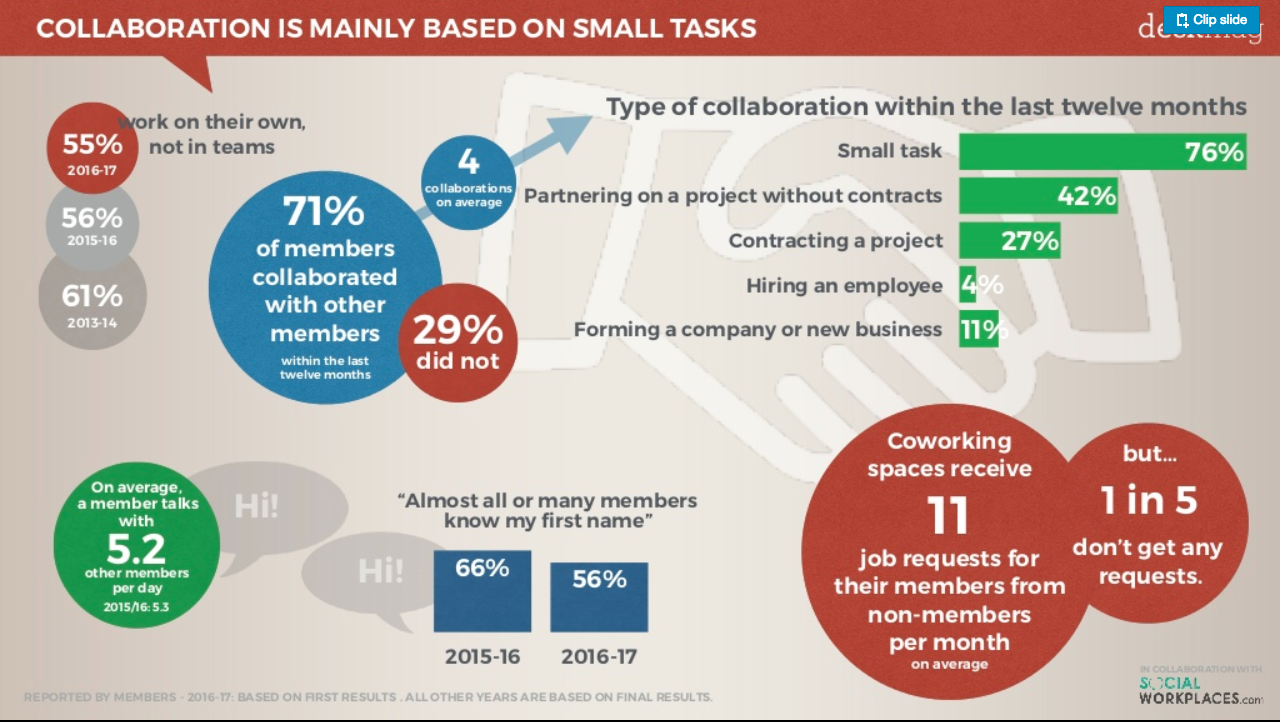Why do coworking spaces need community platforms
I overheard someone saying this recently and it made me think about why co-working is so trendy and unique nowadays — in a working environment you can play ping pong and fussball? Seems pretty cool to me. Now I’m not saying that these things are what create value in these spaces, but rather it’s the mindset of the people and how the space treats their coworkers that really matters. Co-working spaces understand that there’s more to a work environment than a communal cafeteria and water cooler talk. They aim to stimulate co-workers in different ways and have them enjoy the space for recreation and for work. As the trend of co-working continues to grow, with an increase of around 345,000 members from 2016 to 2017, it’s important to consider how co-workers communicate and how to help them get the most out of these great working communities.

Rather than sitting in cubicles or personal offices, co-workers benefit from a physical environment that promotes walking around and interacting with your peers. Places like WeWork, the superpower of co-working spaces, have working areas that are made to promote conversation with unconventional furniture and communal working areas. I work from the Merkspace, a beautiful cultural heritage building in the canal district of Amsterdam, which has marble halls and a huge backyard with a dinosaur statue in it. People argue over whether or not it’s a T-rex or a raptor, either way it’s a great way to get a conversation going.

Why is communication important in a co-working space?
Communication in co-working spaces is exactly why people love to work in them. People from different backgrounds, with different skill sets and with different industry experience all come together in these spaces. Your traditional large corporation is segmented depending on your department or job role. Co-working give you the ability to meet people, learn from one another and co-create, a huge positive benefit of co-working. Research from the Global Co-working Survey shows that around 71% of members collaborated with their peers. Usually taking the form of working together on small tasks, partnering on projects and contracting projects but 11% of all collaborations are in the form of new ventures and businesses. Talking to your coworkers can open you to new ideas and give you insight into topics that could be relevant for your business.

In our experience, a quick conversation with a neighbour changed our entire perspective about a feature we were building. This feature was a way for mentors to be matched to startups. We started by designing a simple 3 step process that allowed startups to describe some things they need from a mentor. A mediator would be able to match a startup to a relevant mentor and then send them a message asking if they would be willing to participate. Then they could both review each other using ratings and leave some feedback. We learned that Dutch Basecamp, a company that helps dutch scale-ups internationalise by offering their network, was one of our neighbours in the co-working space while walking to the printer. Since they help make connections between peers, we thought it would be helpful to get their feedback on our tool.
So, what did we learn?
What we learned from our neighbours at Dutch Basecamp is that startups and scale-ups usually have trouble actually knowing what they need from a mentor. It’s difficult for them to describe the exact skills and expertise they need, so its the job of the mediator, in this case Dutch Basecamp, to assess the situation and choose accordingly. We also thought most communication was through email but turned out that phone calls was the preferred method for interviews. They also suggested that we move away from reviews with ratings and look towards lessons learned. This way there would be less of a focus on the negative aspects of the relationship and would allow both parties to learn what they can do better. All of this information was really useful for us to understand what’s important in a tool like this and we’re working on incorporating these features.
So we’ve established that open communication is important in these spaces.
It’s really great to get feedback like this because not only is it nice to interact with co-workers, but you also get relevant insights from industry experts.
TLDR;
If I hadn’t walked by their office to use the printer I may have never known that they were there or what they do. It’s important for all co-workers to have access to information about what their neighbours are doing and in what areas they have expertise. The purpose of co-working spaces is to co-create and build communities. With no information about what other people within your building or network are doing, its pretty difficult to make the most out of all the information and knowledge you have available. We believe that co-working spaces need a knowledge network. A way to connect people based on their skills and expertise, to make great relationships and learn from each other. The result is a more fun and efficient way to learn and make the most of the diverse knowledge you have in these communities. Of course we promote walking around and meeting everyone face to face, but having access to the information in the first place is where your network can really make a difference.
Thanks to Greg Marschall and Maria Alexandra Rosales.






